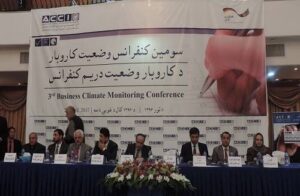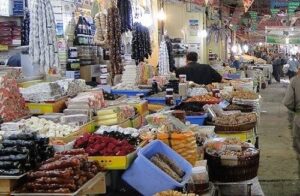
KABUL (SW): For the Afghan government and many citizens, execution of the TAPI (Turkmenistan, Afghanistan, Pakistan and India) gas pipeline project has been a dream come true, but many questions surrounding it remain unanswered.
It is still not clear why the fundamental installations, and sub-stations for supply of gas from Turkmenistan to India and Pakistan are not developed. Will Afghanistan get raw or purified gas? Where this gas would be used? Why is it not clear yet what transit fee Afghanistan would charge Pakistan and India for the supply of gas? And, despite promises, why the railway line, power production and gas distribution centers are not developed yet?
And, above all, will TAPI emerge as dream come true project amid regional rivalries in regard to the interests of Iran, China and Russia in Afghanistan, the conflict of interests, fragile security, and deteriorating security situation in Afghanistan?
To explore more, Salam Watandar has conducted interviews with some stakeholders and those engaged with the project as well as evaluating the statistics relating to trade ties among Turkmenistan, Afghanistan, Pakistan and India.
Timeline of TAPI
Following the fall of the former Soviet Union, The American Unocal and Argentine Bridas firms entered competition for natural resources in Turkmenistan. This competition stalled following the rise to power by the Taliban in Afghanistan prompting Turkmenistan to go ahead with the project on its own. For this, officials from Turkmenistan held several meetings with the Taliban officials, and the U.S. also expressed interests.
Before the TAPI idea turned into a project, the Taliban regime was toppled, and Hamid Karzai took charge in Kabul signing the project in Ashgabat in 2010. Shell and TOTAL also expressed some interests in the project, and shared some proposals with Turkmenistan.
However, amid many ambiguities, in 2015 Afghan president Mohammad Ashraf Ghani, Turkmenistan president Gurbanguly Berdimuhamedow, Indian vice president Hamid Ansari and Pakistani prime minister Nawaz Sharif launched the execution phase of TAPI. Next year, in 2016, leaders of the four countries met in Turkmenistan again, and reiterated the resolve to swiftly implement the project. Initially, it was said the project would be completed by the end of 2018, later it was re-scheduled for 2019.
Turkmenistan at play in Afghanistan
Turkmenistan is witnessing a poor economic growth since 2011. In 2016, the gross domestic product fell to the lowest in years from 14.6 in 2011 to 6.3 in 2016.
In the meantime, a well-placed source at the National Unity Government (NUG) informed Salam Watandar the government in Turkmenistan was not inclined towards launching the TAPI project in 2015.
In 2010, Turkmenistan won the bid to host Asian Indoor and Martial Arts Games (AIMAG) for the year 2017.
According to a Radio Free Europe report, up to $ 5 billion were spent on organizing AIMAG for which Turkmenistan approached the Asian Development Bank (ADB), and now seeks to compensate that by exporting gas to India and Pakistan. At the end of these games, Turkmenistan woke-up to falling prices of gas in the international market. Passing through worst economic conditions since independence in 1991, Turkmenistan’s 75 per cent of exports comprises of natural gas.
According to the International Trade Center (ITC), the rates of petroleum products of Turkmenistan witnessed nine per cent fall between 2013 and 2016. This also damaged the trade balance. Amid all this, there was no other alternative rather than ‘quick launch’ of TAPI.

It is also important to note Turkmenistan needed a big show to demonstrate its worth in the natural resources market amid rivalry with Russia and China in this region. Turkmenistan approached the ADB multiple times for TAPI, and in response to its requests for the initial one billion dollars, it only got $ 700 million.
On top of this, amid open and secret deals between Kabul and Ashgabat, practical work commenced on TAPI in 2017 with leaders of all countries gathering for an extravagant ceremony in Herat province.
A while ago, an official in Turkmenistan, Haji Aow, told a gathering the government has overcome ‘financial and technical’ glitches associated with TAPI, and work has commenced on the 170 km pipe line of the project in the country.
But, as dust settled after hue and cry in the media, and all the festivity, it emerged that due to lack of budget, Turkmenistan has not taken practical measures towards TAPI. There was no surprise when the Embassy of Turkmenistan in Kabul expressed unawareness to a question by Salam Watandar about reasons behind no headway. This unawareness demonstrates no government is ready to answer when the TAPI gas pipeline would pass through Afghanistan.
Investment crisis and falling prices of gas
A well-place source at the NUG informed Salam Watandar the TAPI is a private venture, and the ADB is not going to fund it, but would provide consultancy services. Analyst predict the TAPI would cost up to $ 10 billion, and only major players like Shell and TOTAL can afford to execute it.
But, Turkmenistan has not allowed them to check the reserves, and these firms have also failed to convince the government in Turkmenistan after four years of negotiations.
The Turkmenistan officials are keeping the details about their gas reserves secret. Shell wanted to evaluate these reserves before bidding for complete TAPI. Later, the TAPI Gas Pipe Line Limited was established among the four countries involved namely Turkmenistan’s state-owned Turkmen Gas, Afghan Gas Corporation, Pakistan’s ISGS and Indian GAIL.
The Afghan government has stated it would announce contracts for the various stages of TAPI in the country, and in the year 2017 the contract for design and engineering was awarded to TPCL and IFL.
Another matter of concerns is the tariff for TAPI. A well-placed source informed Salam Watandar not a single meeting over the matter has taken place among all four state-holders. The price offered to India is lowest, followed by that offered to Afghanistan and Pakistan. The reason cited by the Turkmenistan for relatively higher tariff for Afghanistan is ‘higher price charged for transit of gas through Afghanistan’.
Haroon Zarif, head of TAPI in Afghanistan, declined to meet for interview, but Abdul Qadir Mutfi, spokesman for the Ministry of Mines and Petroleum, informed Salam Watandar the tariff has not been finalized yet.
According to the World Bank, out of exports from Turkmenistan worth $ 329 million to Afghanistan, 53 per cent comprised of gas. Up to 7.9 per cent of Afghanistan’s total imports comprised of gas.

India’s detachment, Pakistan’s constraints
Indian vice president took part in the initial agreement in 2015, however, the state minister for external affairs represented New Delhi in the second gathering of the leaders of the four countries in 2017. The source informed India was not impressed with the ‘symbolic’ nature of TAPI, which also discouraged Pakistan, but it remained under pressure from the U.S. In the meantime, both countries got engaged in economic war in Afghanistan, and decided to pay Afghanistan for the TAPI cost here.
A World Bank chart about imports from Afghanistan to India and Pakistan depicts this competition.

The beating of drum by Arg, hopes among masses
The brochure published by the presidential palace about TAPI notes three sub-stations would be established in Herat, Farah and Kandahar provinces. TAPI would see export of up to 33 billion cubic meter gas to Pakistan in 30 years. Afghanistan would receive up to 14 million cubic meter from it on daily basis and would earn up to $ 500 million on annual basis.
For the initial ten years, Afghanistan would receive 500 million cubic meter gas, in the next 20 years, it would receive 1 billion cubic meter gas and in the final ten years it would receive up to 1.5 billion cubic meter of gas. A total of 12 pumping stations would be established in the whole TAPI gas pipe line. Five of them costing $ 1 billion would be set-up in Afghanistan. It has also been agreed upon Turkmenistan would fund establishing of 13 km railway line in Afghanistan costing $ 10.5 million.
However, it seems Afghanistan does not have installations to import the gas yet despite the fact that 18 months’ timeline has been set to implement TAPI. No sub-station has been established, no work is seen for the railway line or gas refining facility in Herat.
Turkmenistan has also not provided clear answers regarding the establishment of installations and refining facilities. The deadline for TAPI has moved from 2015 to 2018 and now to 2019.
Iran has also added to the woes. Hameed Reza Iraqi, head of Petroleum Products Corporation in Iran, said last month Tehran is ready to offer Pakistan with an alternate to gas from Turkmenistan. This has further upset Turkmenistan. Iran claims TAPI needs at least 10 years to be completed.
Amid all this, it seems the politicians are only exploiting the public’s patriotic sentiments for their electoral campaigns.
ENDS





